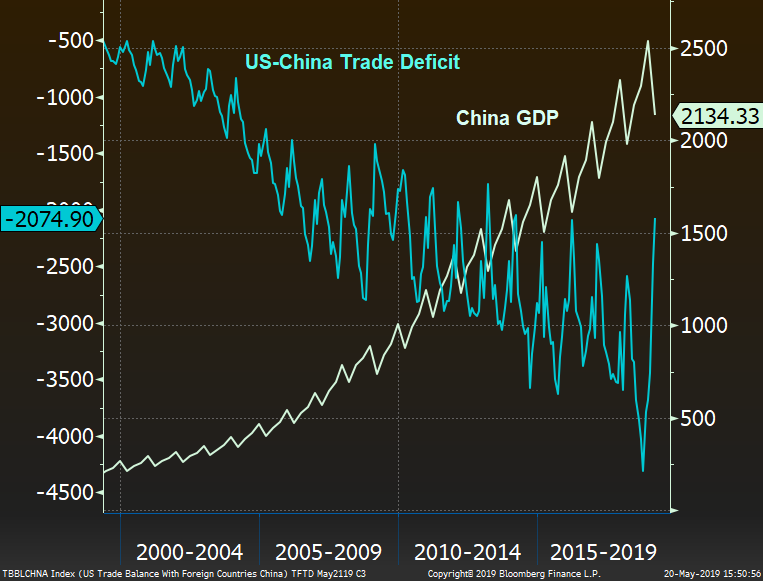“In many ways the contours of the emerging world order are unclear”
Since trade talks failed to produce any kind of resolution earlier this month, the US and China have recommenced with mudslinging and tit-for-tat punitive measures. In addition to tariffs, President Trump signed an executive order that lead Google to suspend business with Huawei, the world’s number two phone maker. As an article from The Verge eloquently phrases it,
“Deprived of Google’s software, Huawei would be selling featherless chickens to smartphone buyers used to having Play Store access.”
The government has since walked back the restriction and granted Huawei a 90 day reprieve.

Huawei is also facing problems with acquiring chips needed for their phone, but anticipated potential supply problems and “has been preparing for a scenario of survival in extreme conditions” according to an article from China Plus. Meanwhile, the “Boycott Apple” movement in China appears to be gaining steam, as reported in this article from 9to5Mac. This is an echo of the informal boycott Malcolm Scott reported on in a January article for Bloomberg. Scott focused on analysis from BofAML economists, who presciently warned,
“Given the battles around high tech, this spillover from politics into sales could be particularly high in the cell phone market.”

But while the short-term theatrics have been garnering much of the headline space, our attention was captured by Chas W. Freeman, Jr. Ambassador Freeman, whose many accomplishments include serving as U.S. Ambassador to Saudi Arabia and editing the entry on “diplomacy” in the Encyclopaedia Britannica, said in a recent speech that the trade war “has quickly metastasized into every other domain of Sino-American relations.” Highlighting the lack of policy process and direction displayed by the current administration, Freeman carefully weeds through the complaints lodged against the Chinese, both legitimate and illegitimate, and describes how Sino-American relations have evolved. Freeman argues that China’s “transformation owes a great deal to the breadth and depth of American engagement with it.” Freeman then discusses the various facets of US-Chinese antagonism, concluding that current policies do “not add up to a fruitful approach to dealing with the multiple challenges that arise from China’s growing wealth and power. Finally, Freeman offers “a few suggestions” and concludes by saying “hostile coexistence between two such great nations injures both and benefits neither”. While on the lengthy side, Freeman’s speech is well worth the read as it not only strikes at the central cultural issues, but also explains what happens when love breaks down.





